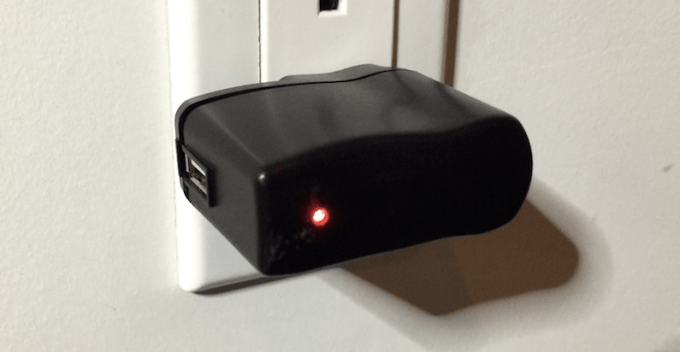
“Whose phone charger is that sticking out of the wall? Oh. It must be Ben’s. Ben always leaves his charger at work. Classic Ben!”
Alas, it’s not Ben’s charger. Hell, it’s not a charger at all. It’s actually a little spy device disguised as a phone charger, capable of sniffing out every key you type on that wireless keyboard on your desk. Oh, and it can send the stuff it picks up straight to the eavesdropper’s phone. Oh! Oh! And it’ll keep working even if you unplug it — it only pretends to turn off.
That little box up top is built by Samy Kamkar (Yeah — the same Samy who built the self-titled worm that ravaged Myspace back in the day, and who built that crazy hands-free hacking necklace a few weeks back) who has dubbed it the “KeySweeper.”
Before you panic and throw your keyboard in the trash, here is the good news: This specific device only affects certain wireless keyboards. Most notably, Microsoft-branded wireless keyboards. We’re still trying to dig up a more exhaustive list — but for now, let “Microsoft wireless keyboard” be your caution sign.
In a statement, Microsoft notes that it only affects its 2.4 Ghz (not Bluetooth) keyboards released before July 2011 (Update: See the bottom of this post for a note on this from Samy, the man behind the hack). Even if it’s “only” older keyboards, remember: outside of the gamer crowd, most people don’t update their keyboards very often.
Here’s some of the crazier stuff KeySweeper can do:
Sniff out keystrokes as you type them.
If it detects certain keystrokes (like “TopSecretWebsite.com”), it can grab the chunk of text that follows (like your username and password) and send it over SMS to whoever planted the device.
Store keystroke logs on the device itself. These logs can be extracted from the device by hardwired USB, or by putting a second KeySweeper device within range of the first (like, say, an outlet on the other side of the wall).
When plugged in, it grabs its power from the wall.
When unplugged from the wall by an abnormally suspicious bystander, it looks like it powers down — but it actually just switches to battery power. Logging/sending continues. Naaaasty.
On the upside, most brand-name wireless keyboards sold today use encryption methods that are a bit tougher to crack. Logitech, for example, uses 128-bit AES on all of its wireless stuff (see page 6 of this doc for reference).
Samy estimates that each unit would cost $10 to $80 to build, depending on what sort of features you want (ditching the SMS support, for example, brings it down by about $45) — but is quick to note that he’s not actually selling these.
Comments
Post a Comment